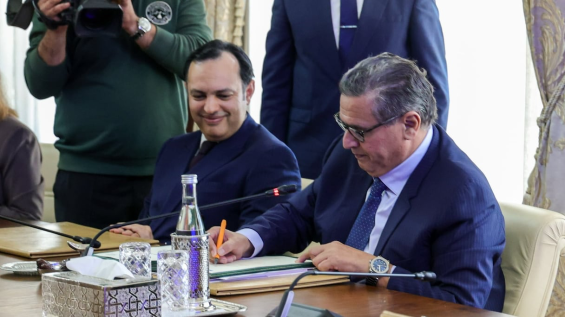Faced with a challenging employment landscape, the Akhannouch government has introduced a new strategy aimed at addressing long-standing deficiencies. During a meeting focused on employment promotion, chaired in Rabat on Tuesday by the Head of Government, ministers Younes Sekkouri (PAM) and Nadia Fettah (RNI) outlined ambitious measures to counteract the disappointing outcomes of 2022 and 2023.
Alarming figures
Morocco's job market continues to face significant challenges. According to the High Commission for Planning (HCP), the country experienced a net loss of 24,000 jobs in 2022. The situation worsened in 2023, with a net loss of 157,000 jobs, largely due to a drop of 198,000 positions in rural areas, partially offset by 41,000 new urban jobs. While projections for 2024 indicate some improvement (75,000 net jobs created in the first nine months), these figures still fall short in a country where unemployment stands at 13.6% nationally and nearly 40% among young people aged 15-24.
The mid-term results of the Akhannouch government starkly contrast with the electoral promises made by the RNI in 2021. Job creation, a cornerstone of their campaign, included pledges to create one million net jobs within five years, modernize the labor market, stimulate rural employment, and promote entrepreneurship and innovation.
A strategy for reviving employment
In response to these challenges, the government has committed to stepping up its efforts. Minister of Employment Younes Sekkouri introduced several key initiatives:
- Targeted training programs for apprentices and support for individuals without formal qualifications, in collaboration with ANAPEC.
- Enhanced rural employment initiatives through localized training aligned with small and medium-sized enterprises' needs.
- Simplification of administrative processes to boost opportunities, particularly for micro, small, and medium-sized enterprises identified as critical drivers of job creation.
Meanwhile, Minister of Economy Nadia Fettah announced a 14 billion dirham budget allocation for this strategy in 2025. She emphasized the development of «a clear, operational strategy» to address short-term employment challenges up to 2026 (the next legislative elections) and a complementary program targeting medium- to long-term sustainable job opportunities.
Despite these initiatives, skepticism remains. Previous commitments, such as those linked to the new Investment Charter and sectoral plans, have failed to deliver the anticipated job growth. Structural challenges persist, including: A disconnect between the skills of graduates and labor market demands, job insecurity in rural areas, compounded by recurring droughts and limited appeal of key sectors such as tourism and agri-food.
For the governing coalition (RNI and PAM), the real political test lies in achieving measurable progress before the next elections. Delivering on even half of the original promise—creating 500,000 jobs by 2025—would be a significant accomplishment. Accelerating job creation to meet the target rate of 200,000 jobs annually could help mitigate past failures and shape future electoral narratives.





 chargement...
chargement...













